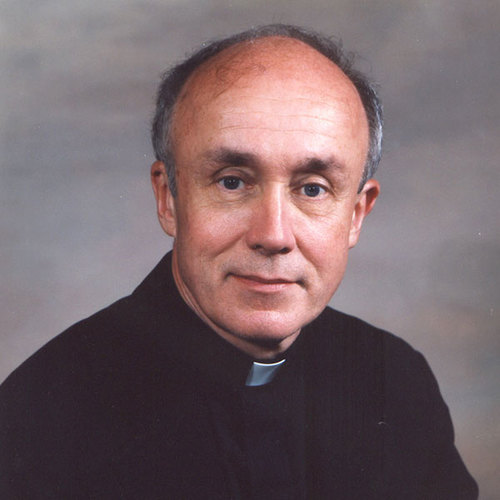Mary as Mother: A Symbol of Life and Hope for Christians
Next Session: Apr 28, 2025
Mary is a classical figure in the Christian tradition, meaning that as a symbol of the faith she possesses both a permanence and an excess of meaning for our lives. This course is aimed at deepening one’s understanding of Mary’s mystery for Christian faith. Covering the whole of the Church’s history of theological reflection on Mary and the development of Mariological doctrine, this course will build upon previous foundations by inviting the participant to become actively engaged in the process of historical theology—of listening to how the human voices of the past speak to us today. Covering everything from the Gospel narratives and patristic theology, to the development of catholic dogma and devotional practice, this course will challenge the participant with the questions: Who is Mary? And who is she for Christians today?
Course Content
Unit 1
- This unit will introduce the main questions surrounding Mary and her importance for Christian life today, while exposing us to the historical methodology Fr. Daley will employ throughout this study.
- After laying this foundation, we will examine the early Church’s understanding of Mary from the 1st century Christian Gospels to the 5th century doctrine of Theotokos.
- The emphasis is placed on maintaining an intimate connection between Mary and Jesus.
Unit 2
- This unit will focus on the development of three main Marian dogmas: her holiness and perpetual virginity, her Assumption, and her Immaculate Conception.
- Through tracing this development, one can see how Mary emerges on her own as a locus for theology. In other words, the question will not be who is Mary in relation to Jesus, but who is Mary in herself?
Unit 3
- This unit shifts the attention to us, to how Christians have experienced and responded to Mary over the centuries in devotional prayers, litanies, poetry, visions, and apparitions.
- The end of this lecture will lay out good criteria for evaluating such devotional practices and their fruitfulness for the Christian faith which worships God in Christ.
Unit 4
- Approaching Vatican II, the church was living in “an age of Mary,” and within 15 years of the council, her significance for the church and in the lives of Christians had faded significantly.
- This unit will look closely at the theological milieu that led up to Lumen Gentium 8, and the fallout after the Council.
- Attention here is given to the Church.
Unit 5
- To this point we have studied and experienced Mary from a variety of angles: as she relates to Jesus, who she is in herself, how she relates to the lives of faith of past Christians, and how she relates to the church.
- What does it all mean? How can we understand Mary today? This final unit attempts to synthesize Mary’s many relationships in the Christian Tradition, and offers a refreshing, even startling view of who Mary can be for us.
Course Format
- Created by Notre Dame Theology Professor.
- Six weeks in duration, with one week for orientation.
- Typically 15-20 students in each course.
- Lectures delivered by streaming video. Lecture text also provided in the course.
- Supplemental readings are provided to encourage further exploration of topic, internet links provided for all readings.
- Written assignments (200-250 words) required.
- Facilitator moderated Zoom sessions with students in course.
Required Texts
- All course materials are available online in the course.
Participation Requirements
- View or read the lecture for each unit.
- Read assigned texts; keep notes, questions, and comments for class discussion.
- Participate in the class discussion using the Forums area: post at least 2 comments, questions, or responses per unit.
- Respond to the assignment in each unit.
- Participate in at least 3 scheduled Zoom sessions throughout the course.
- Complete the course evaluation.
Time Expectations
4 to 6 hours per week, depending on your learning style and schedule.
Course Certificate
A certificate of completion awarding 30 contact hours will be sent upon completion of all course requirements.

Rev. Brian E. Daley, S.J.
Fr. Daley is a historical theologian, who specializes in the study of the early Church, particularly the development of Christian doctrine from the fourth to the eighth centuries. He has prepared a critical edition of the works of the sixth-century Greek theologian Leontius of Byzantium, which is to appear in the series "Corpus Christianorum," and has written a number of articles for scholarly journals on ancient Christology, Trinitarian theology and eschatology. His most recent books are The Hope of the Early Church, (1991) and On The Dormition of Mary: Early Patristic Homilies, (1997),Gregory of Nazianzus (2006) [in the series, The Early Chuch Fathers], and translated Hans Urs von Balthasar's book, Kosmische Liturgie, as Cosmic Liturgy: the Universe According to Maximus the Confessor (2003). Presently he is working on a commentary on the Book of Psalms drawn from Patristic exegetical sources. In January and February, 2002, he delivered the annual D'Arcy Lectures in the University of Oxford, a series entitled: God Visible: Patristic Christology Reconsidered. The lectures should appear as a book before long. A past president of the North American Patristic Society, he is an editor of the scholarly journal Traditio, and also serves on the editorial board of the Journal of Early Christian Studies. He has been a trustee of Le Moyne College, Boston College, Georgetown University and Fordham University, and is executive secretary of the Orthodox-Roman Catholic Consultation in North America.
B.A., Fordham University (1961); B.A., University of Oxford (1964); M.A., Oxford (1967); Ph.L., Loyola Seminary, Shrub Oak, NY (1966); Lic.theol., Hochschule Skt. Georgen (Frankfurt, Germany, 1972); D.Phil., University of Oxford (1978)